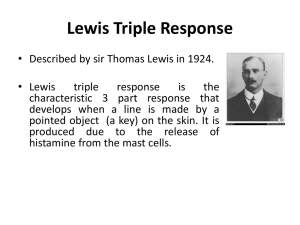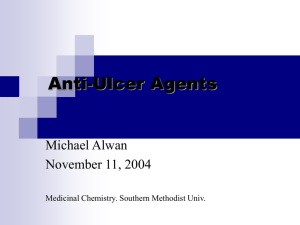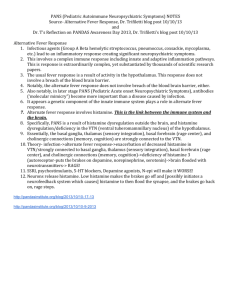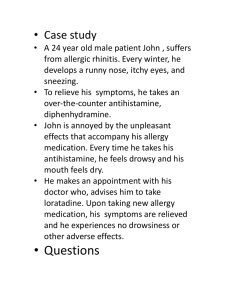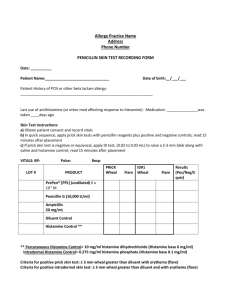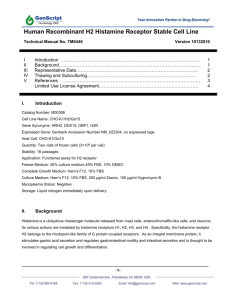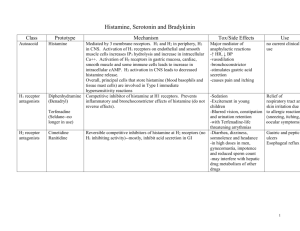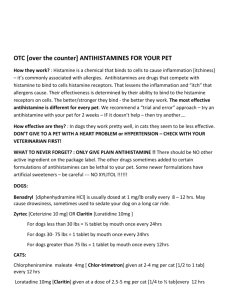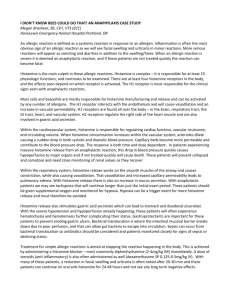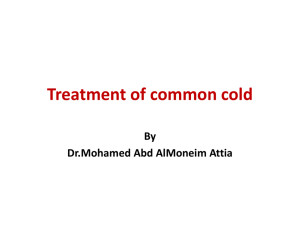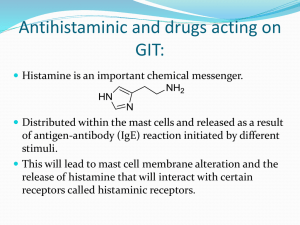King Saud University Practical Pharmacology
advertisement
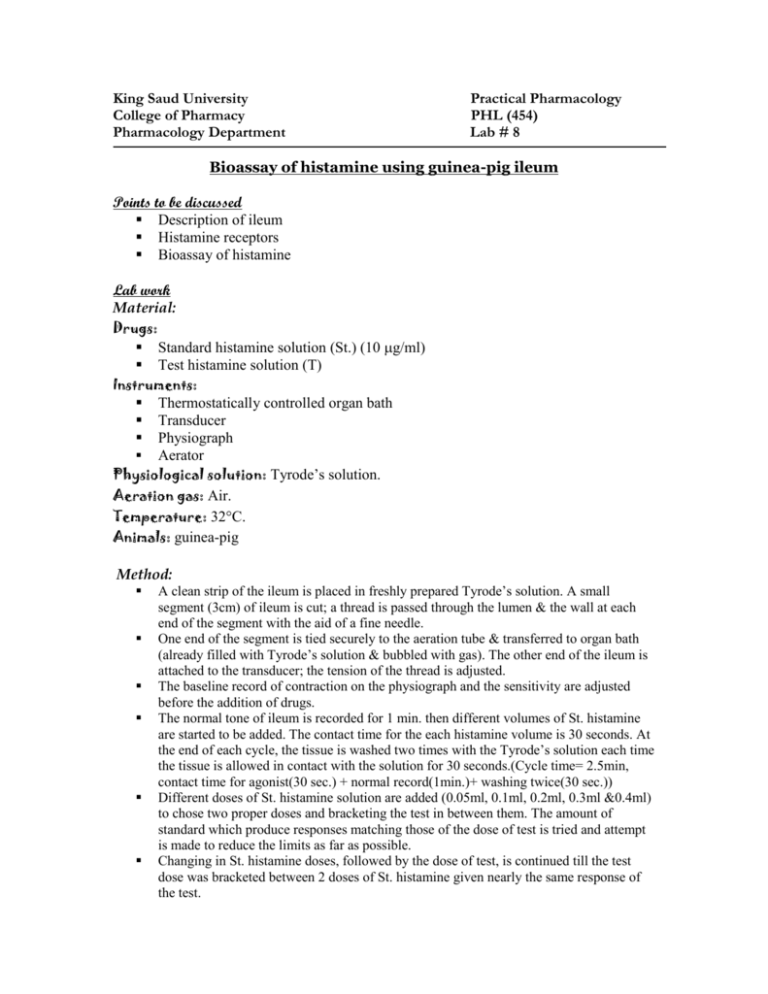
King Saud University College of Pharmacy Pharmacology Department Practical Pharmacology PHL (454) Lab # 8 Bioassay of histamine using guinea-pig ileum Points to be discussed Description of ileum Histamine receptors Bioassay of histamine Lab work Material: Drugs: Standard histamine solution (St.) (10 g/ml) Test histamine solution (T) Instruments: Thermostatically controlled organ bath Transducer Physiograph Aerator Physiological solution: Tyrode’s solution. Aeration gas: Air. Temperature: 32°C. Animals: guinea-pig Method: A clean strip of the ileum is placed in freshly prepared Tyrode’s solution. A small segment (3cm) of ileum is cut; a thread is passed through the lumen & the wall at each end of the segment with the aid of a fine needle. One end of the segment is tied securely to the aeration tube & transferred to organ bath (already filled with Tyrode’s solution & bubbled with gas). The other end of the ileum is attached to the transducer; the tension of the thread is adjusted. The baseline record of contraction on the physiograph and the sensitivity are adjusted before the addition of drugs. The normal tone of ileum is recorded for 1 min. then different volumes of St. histamine are started to be added. The contact time for the each histamine volume is 30 seconds. At the end of each cycle, the tissue is washed two times with the Tyrode’s solution each time the tissue is allowed in contact with the solution for 30 seconds.(Cycle time= 2.5min, contact time for agonist(30 sec.) + normal record(1min.)+ washing twice(30 sec.)) Different doses of St. histamine solution are added (0.05ml, 0.1ml, 0.2ml, 0.3ml &0.4ml) to chose two proper doses and bracketing the test in between them. The amount of standard which produce responses matching those of the dose of test is tried and attempt is made to reduce the limits as far as possible. Changing in St. histamine doses, followed by the dose of test, is continued till the test dose was bracketed between 2 doses of St. histamine given nearly the same response of the test.
